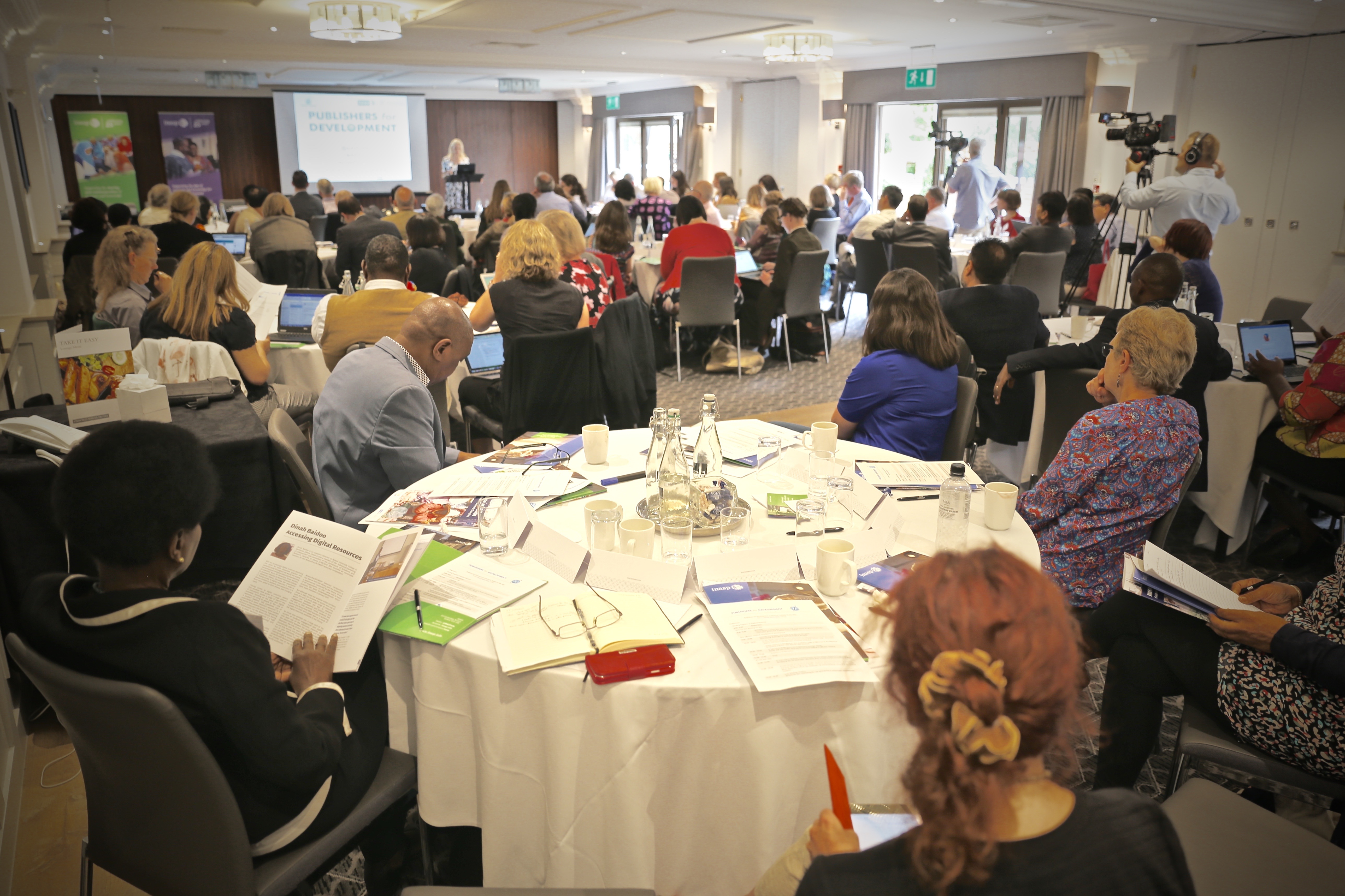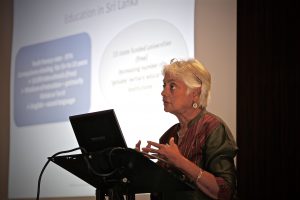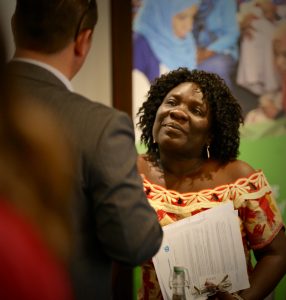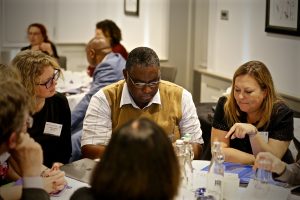
Local knowledge for local challenges
In an article originally published in Research Information, Siân Harris reflects on some of the stories from last week’s Publishers for Development conference, which brought together international scholarly publishers with librarians and researchers from Africa and south Asia
During the Vietnam War, many US soldiers fell victim to – and often died from – a mysterious disease. The cause was a pathogen named melioidosis – or Vietnamese Time Bomb, which lurks within the soil and produces symptoms that can appear to be other diseases. But is this only a Vietnamese problem?
Sri Lanka has many similarities with Vietnam so this was a question that Vasanthi Thevanesam, an emeritus professor of infectious diseases at the University of Peradeniya in Sri Lanka, wanted to address. She and colleagues identified that Vietnamese Time Bomb is indeed present in Sri Lanka and so worked towards a national diagnostic service for the disease; increased awareness amongst clinicians and laboratory providers; and improved public awareness.

Vasanthi Thevanesam, a professor of infectious diseases in Sri Lanka, shares the role that access to international research literature plays in identifying and tackling life-threatening diseases.
‘To contribute, even in a small way, towards reducing the burden of disease and death caused by infections has been immensely satisfying in a career lasting more than 40 years,’ she commented.
From a secret killer to a secret healer, in Ghana a so-called miracle berry has long been known about locally. This berry is harmless and tasteless but, 30 minutes after it is eaten, it makes all foods taste sweet. In recent years, this berry has begun to help diabetics, dieters, and cancer patients who have lost appetite as a result of chemotherapy.
But how many more plants are there that could be making a difference if only they were known about? Margaret Sraku-Lartey, a librarian at the Ghanaian research institute CSIR-FORIG and representative of the Consortium of Academic and Research Libraries of Ghana (CARLIGH), is working with colleagues to collect, digitise and organize indigenous plant knowledge from Ghana.
Both Vasanthi’s and Margaret’s stories have a common theme: the importance of building local research on local and international information. This was a key theme of INASP’s Publishers for Development (PfD) conference held in July in Oxford.
The annual PfD conference brings together international publishers with researchers, librarians and others from low- and middle-income countries to build bridges and aid understanding between these groups. In particular, it aims to inspire scholarly publishers about the fundamental role that access to high-quality, international literature plays in enabling local research that is relevant to local contexts, whether it be tackling infectious diseases or preserving indigenous knowledge.
As Margaret explained: ‘No matter how good your research is, it must be anchored on sound theoretical concepts and on up-to-date information.’

Margaret Sraku-Lartey, a librarian from Ghana, discusses the importance to research of capturing and preserving indigenous knowledge for research.
But having access to this research information is only part of the story. Equally important is that countries have their own strong systems in place to manage these resources; select the e-journals and e-books that are most appropriate to their local research needs and priorities; monitor and evaluate their collections; communicate with researchers about what is available; and liaise with the information providers.
Both Sri Lanka and Ghana have, over the years and with INASP’s support, built strong library consortia that now, or in the near future will, work directly with publishers on licensing and negotiating access to electronic journals and books. INASP is very pleased that these consortia have reached this stage and we are grateful to our publisher partners for their support to Southern library consortia at all stages of their development.
As Margaret observed in her talk: ‘Publishers prefer to work with knowledgeable, well-trained librarians. Support from INASP has helped to produce skilled librarians who are capable of teaching researchers to use resources optimally.’
There are other ways to support Southern research too. Over INASP’s 25-year history another important strand to our work has been supporting the dissemination of local research within countries and regions. As Vasanthi explained in the context of her research: ‘Improvements to health and wellbeing depend upon the existence of a thriving research and knowledge sector.’
The PfD conference also talked about ways of supporting developing-world research communication, through local publishing platforms; Vasanthi is herself also chief editor of Sri Lankan Journal of Infectious Diseases, which is on the Sri Lanka JOL platform) and also through support to authors through the AuthorAID network. Many publishers, researchers and librarians are supporters of AuthorAID, ranging from individuals volunteering as mentors to publishers sponsoring training activities. For more information see www.authoraid.info.
This is just a small (and hopefully sweet) taste of the topics discussed at the recent PfD conference. We will be releasing videos from all the talks over coming weeks (on www.pubs-for-dev.info). We urge you to watch them and also to see the #PfD2017 hashtag to catch up on the discussions.


 Previous Post
Previous Post Next Post
Next Post


